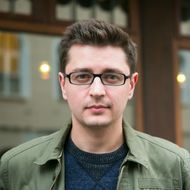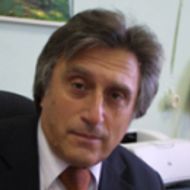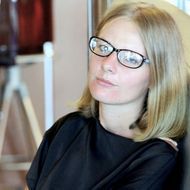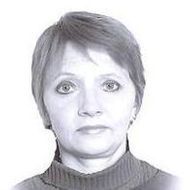- A
- A
- A
- ABC
- ABC
- ABC
- А
- А
- А
- А
- А
- HSE University
- Educational Departments
- Faculty of Humanities
- School of Philosophy and Cultural Studies
- Research Group "European Philosophy between the Middle Ages and the Modern Period"
-
School
- About the School
- Faculty Members
- International Faculty
- Scientific activity
- Educational activity
-
Research Groups
-
Educational Programmes
-
Conferences
Address: 21/4 Staraya Basmannaya Ultisa, building 1, room 414в
Phone: +7 495 772-95-90*22692
Email: aengovatova@hse.ru
Research Group "European Philosophy between the Middle Ages and the Modern Period"
The Research Group "European Philosophy in the Medieval and Modern Period" includes Russian and European early career researchers and senior scholars for a broad spectrum of interdisciplinary topics. The historical focus of the group lies on medieval and early modern philosophy and our research is connected with different aspects of the development of European philosophical thought. The research interests of the members of the research group cover the history of scientific and technological thinking in the Renaissance and the Early modern period, philosophical ideas of canonical figures (Bacon, Hume, Leibniz) and equally those authors who formed the philosophical background of this period. Within the research group, an independent unit addresses the exploration of German classical philosophy in the context of the period.
Main research specialisations of the group:
- canonical and non-canonical authors in the history of philosophy;
- the transformation of natural philosophy during the Scientific Revolution. Forgotten figures and neglected texts;
- the influence of the philosophy of the 17th and 18th century on Immanuel Kant and German Classical Philosophy;
- philosophy of emotions and affects in German Classical Philosophy.
Ongoing and planned projects:
- Translation into Russian of Johann Stier’s textbook "Praecepta Physicae: Ex Aristotele, Aliisq Probatis Auctoribus Collecta, & Adiuvandae Memoriae Causa Tabulis Synopticis Inclusa" Erfurt: Bircknerus, 1632. The project has been ongoing in the context of the Research Seminar History of Philosophy: Texts and Interpretations in the second year of the BA since 2017. The project supervisor: Associate Professor Stefan Heßbrüggen-Walter. The results of the project are accessible via https://johann_stier.gitlab.io.
- Research project for students "The Epoch of the Scientific Revolution: philosophy, experiment, mechanism, change". The project supervisor: Prof. Tatiana Sidorina
- Research and digital project “Leibniz-Clarke correspondence in the context of European philosophy”. The project was born from a research seminar on Leibniz-Clarke correspondence for BA students in Phiosophy. For the current year we have decided to make an overview of philosophical and scientific conceptions on space in order to evaluate how traditional or novel were arguments of Leibniz and Clarke/Newton. The project supervisor: Daria Drozdova
- Reading group "Friedrich Schelling’s Ages of the World". The seminar takes place on Fridays 19:00 at the non-commercial and independent educational project "Laboratory of Superfluous Things". Organiser: Petr Rezvych. More information on the website of the seminar.
- Reading group “Leibniz’s Discourse on Metaphysics” organized by Open Philosophical Faculty. Main lecturers: Natalia Osminskaya, Petr Rezvych
- Translation of philosophical classics. The project has been planned since September 2020. The project prepares specialists for the translation of philosophical texts and aims to teach the theory and practice of philosophical translations. Students execute under the direction and with the participation of teachers own projects concerning the translation of passages from philosophical texts and participate in their discussion. The project supervisor: Andrey Veretennikov.
- "Unknown Treasures", a project dedicated to the search, digitisation, edition, and commentary of archival sources that are related to the history of Russian and European philosophy and which are preserved in Russian museum collections. These sources are important both for raising awareness of Russian national culture and intercultural dialogue. The realisation of the project is planned for 2020 to 2022
- About
- About
- Key Figures & Facts
- Sustainability at HSE University
- Faculties & Departments
- International Partnerships
- Faculty & Staff
- HSE Buildings
- HSE University for Persons with Disabilities
- Public Enquiries
- Studies
- Admissions
- Programme Catalogue
- Undergraduate
- Graduate
- Exchange Programmes
- Summer Schools
- Semester in Moscow
- Business Internship
- © HSE University 1993–2026 Contacts Copyright Privacy Policy Site Map
- Edit



